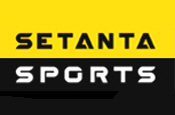
In its first week of airing England's live away games, it rejected bids from BBC and ITV to show free-to-air highlights of England's World Cup qualifying match because the sums offered were far below the £1m price it had set.
Setanta ended up showing highlights for free on one of its own channels a few hours after the game. It later sold a delayed package for £100,000 to ITV, which showed the goals a day later. Ironically, ITV's highlights drew 1.6 million viewers - an average of 200,000 more than Setanta had for the full live game.
With chants of 'We hate Setanta' from some England fans at the match in Croatia, its image as an up-and-coming sports broadcaster made popular by its bravery in taking on Sky in the football market could be damaged by the incident.
Setanta is working on negotiations - most likley with ITV - to prevent a repeat of the situation before it shows England's match against Belarus on 15 October.
Tim Ryan, marketing director of Setanta GB, defends its position, insisting that, as a commercial broadcaster, it had a duty to get the best possible price for hightlights.
'We were asking for £1m, which may look like a lot, but in the sports rights market it is a standard benchmark of 20% of the cost of the overall rights,' he says. 'We have learned a lot about how to manage the England portfolio in a week, and I don't feel that our brand has been damaged long-term. We are a young brand and we will use what we've learned as we move on.'
Setanta is not the only brand to suffer. Interbrand chief executive Rune Gustafson points out that, while the Football Association (FA) may not have been at fault, its brand would suffer most from the impasse. 'It has a duty to ensure that there is genunine support for the fans of the national team, so its brand has certainly been damaged in the eyes of those who support England,' he says. 'Any backlash there is may come its way.'
Ryan, however, is quick to defend the FA. 'Those blaming the FA don't understand that it has nothing to do with these rights,' he says.


.jpg)


.jpg)